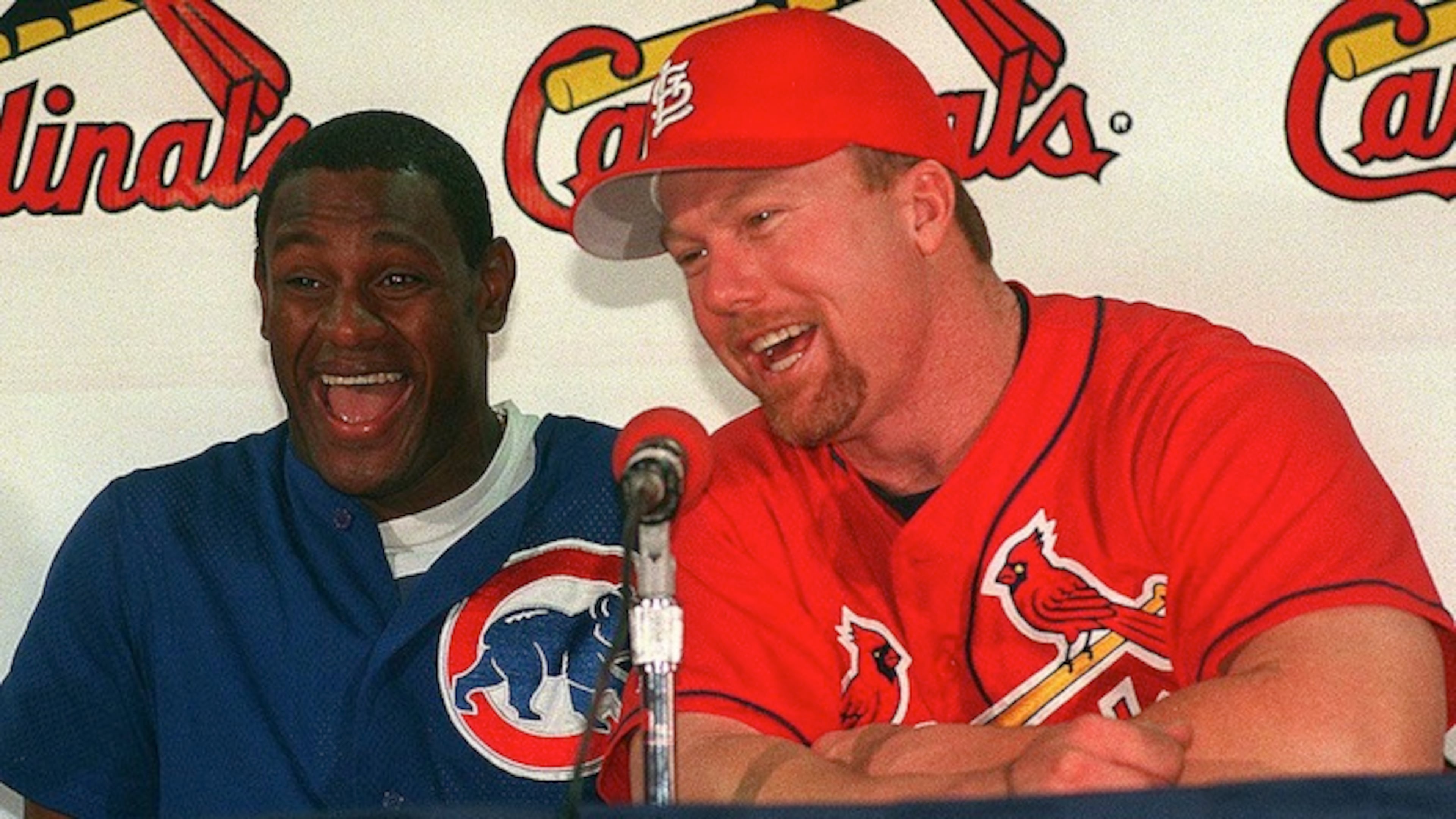Sosa-McGwire home run chase? We should have known better

By 1998, when the Cubs' Sammy Sosa and the Cardinals' Mark McGwire started the slugfest that captivated the nation, I should have known better.
After all, what was then nearly two decades of covering performance-enhancing drug use in Olympic sports had left me skeptical of unprecedented achievements in all sports, a state of mind that made "how?" the default reaction instead of "wow!"
After all, hadn't I written in April 1997, "Does anyone believe only a livelier ball and expansion-era pitching are making 40-home-runs-in-a-season hitters out of players who seemed incapable of hitting that many in a decade? Please."
Yet I couldn't help myself.
The Sosa-McGwire home run derby was indeed a fraud, but it had become too much fun to ignore with a cynical, knowing shrug. That it involved players on teams whose rivalry is among the longest running in sports added another element of interest.
So I remembered late August 1998 not for McGwire's admission he had been taking the anabolic steroid precursor androstenedione, a substance banned at the time by the International Olympic Committee and the NFL but not baseball.
Instead, the lingering memory had been sitting on a beach on a Sunday afternoon and listening to the call and antiphon of cheers resounding across sand and water. Beachgoers with radios loudly acknowledged the two Sosa home runs that not only pushed him past 50 but whittled McGwire's lead to two in the race to break Roger Maris' 37-year-old single-season record of 61.
Nearly every listener enjoying the waning days of Chicago's all-too-short beach season smiled as they saw in their mind's eye the trademark Sosa reaction to a home run: the hop in the batter's box, the fingertip taps of his heart and lips, the fingers raised in a salute to his mother.
By the time McGwire tied Babe Ruth's 60 homers, the venerable record Maris broke, the Tribune had dispatched me to the Dominican Republic for a story on Sosa's humble roots.
On Sept. 7, the day I reached the island, McGwire hit homer No. 61, leaving Sosa three behind. That it came off Cubs pitcher Mike Morgan was a Cardinal sin in the eyes of Cubs fans.
The next night, I went to watch the Cubs-Cardinals game in Sosa's hometown, San Pedro de Macoris. At the 30-30 Plaza, named to commemorate Sosa's having become the first Dominican ballplayer to have 30 home runs and 30 stolen bases in the same season, a dozen fans sat quietly outside the Hit Bar watching on TV as McGwire achieved baseball immortality by hitting his 62nd homer off Steve Trachsel.
The overall atmosphere was disappointingly muted to a visitor who expected more.
"Baseball-mad San Pedro did not stop for Tuesday's historic moment," I wrote. "In fact, it kept rolling by the 30-30 Plaza on motor bikes, jitney buses, cars and trucks."
A fan named Julio Caro said he expected McGwire would be first to break Maris' record but felt Sosa would have the last word.
That nearly happened.
On Sept. 25, as each team played its third-from-last game of the season _ the Cubs at Houston, the Cardinals at home against the Montreal Expos _ Sosa homered to go ahead 66-65. It was the first time since May 14 that McGwire did not have at least a share of the major-league home run lead.
Forty-five minutes later, McGwire tied Sosa at 66. He pulled ahead for good with two home runs in the next game and added two more in the season finale a day later, finishing with 70 to Sosa's 66.
Sosa fans _ and there were seemingly millions in Chicago then, before his 2003 corked bat suspension and his fleeing the park early on the final day of the 2004 season _ could take some solace because his season continued with a win over the Giants in a one-game tiebreaker that put the Cubs in the playoffs. The Cardinals had finished six games behind the Cubs.
It wasn't long before it became apparent I shouldn't have suspended disbelief to enjoy the prodigious slugging. It eventually left me feeling like Todd McFarlane, even if I had not spent some $3 million to buy 10 home run balls from the McGwire-Sosa record chase as McFarlane had.
"The reason it's still a dagger in the heart is because we fell in love," McFarlane told the New York Times in 2009. "We wanted it to be romantic and pure and innocent and fun, but it wasn't."
The New York Times reported in 2009 that Sosa had tested positive for a PED in 2003, his disclaimer of having taken only Flintstone vitamins to the contrary. Sosa's fluency in English conveniently disappeared during a 2005 Congressional hearing in 2005. He never has fessed up to the obvious.
McGwire told that 2005 hearing, "I'm not here to talk about the past." Five years later, in a shameless ploy to get back into baseball as the Cardinals' hitting coach, McGwire insulted everyone's intelligence by admitting he took steroids off and on for nearly 10 years, including 1998, but insisting the drugs did not help him hit home runs.
Seventeen years later, with Cubs and Cardinals sharing a spotlight again, the memory of Sosa adding sunshine to a perfect August day on the beach is a footprint in the sands of time.

